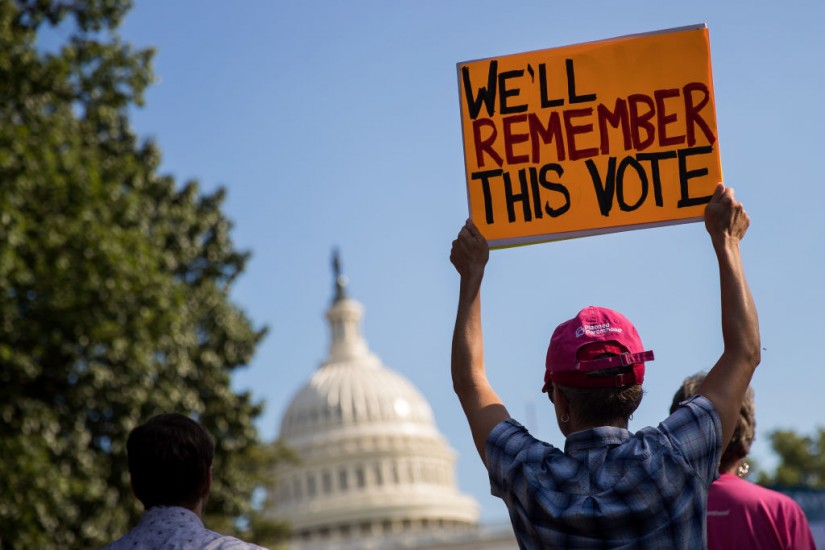Over the past century, there has been a characteristic American cycle of response to far-reaching social reforms.
When the breakthroughs are first proposed, conservatives fight them with a devout passion, warning that the measures on offer would move the nation toward socialism and perdition. Then, over time, the disastrous consequences never materialize, the reforms prove their worth, and Americans come to see the once-new benefits as rights.
This was certainly the case with two of our nation’s greatest social programs.
In the debate over Franklin D. Roosevelt’s plan for Social Security, Rep. James Wadsworth said the system would make government “so vast, so powerful as to threaten the integrity of our institutions and to pull the pillars of the temple down upon the heads of our descendants.”
Rep. John Taber, like Wadsworth a conservative Republican from New York, was equally apocalyptic: “Never in the history of the world has any measure been brought here so insidiously designed as to prevent business recovery, to enslave workers and to prevent any possibility of the employers providing work for the people.”
As it happened, the pillars of the temple remained firmly in place, and so today does Social Security.
The story is the same with Medicare. An eloquent conservative actor named Ronald Reagan warned in 1961 that if the plan passed, “behind it will come other federal programs that will invade every area of freedom as we have known it in this country.”
Reagan saw only darkness ahead if Americans did not rise up against this scheme. “One of these days, you and I are going to spend our sunset years telling our children, and our children’s children, what it once was like in America when men were free.”
The Gipper also offered this: “It’s very easy to disguise a medical program as a humanitarian project. Most people are a little reluctant to oppose anything that suggests medical care for people who possibly can’t afford it.”
As well they should be, and this is why the coming weeks will be among the most important in the history of American social policy. A handful of Republican senators will decide whether the Affordable Care Act (ACA) will remain part of the fabric of our nation’s life, the latest in a long series of steps toward a more humane society.
